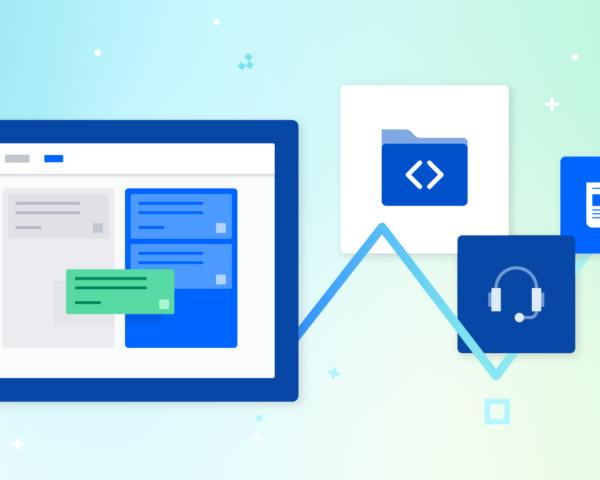3 key takeaways from our Open DevOps webinar
Learn the top three ways that a developer-optimized DevOps program can benefit your team.
Our webinar on how to optimize the developer experience with Open DevOps features Atlassian product manager Gareth Wham and product marketing manager Tamulyn Takakura. They shared the basics of what it means to practice DevOps and how companies have implemented a DevOps culture. They also walked through a demo to show how to develop, deploy, and manage applications using Atlassian Open DevOps. The webinar is available on-demand here. You can also find a list of commonly asked questions.
Here are three key takeaways that can help you and your team no matter where you are in your DevOps journey.
1. DevOps automation gives developers more time to focus on delivering value
Developers’ work has evolved over the years due to changes in work pace, workload, and even the workplace. Their scope of work can now include operations, implementing workflows, security, testing, and much more outside of writing code. But this added responsibility can slow down the entire software development lifecycle. Luckily, DevOps tools can help automate and accelerate DevOps fundamentals, such as continuous integration, continuous delivery, and collaboration – enabling developers to spend more time on writing code and less time on manual tasks.
2. Culture is an essential part of DevOps
DevOps emphasizes team empowerment, cross-team communication, and collaboration. Companies that have been successful in implementing DevOps have one thing in common – they were able to create a DevOps culture within their teams. Part of creating a healthy DevOps culture is about empowering developers. And one way to do this is by giving developers ownership of their code across its entire lifecycle, moving closer to a “you build it, you run it” way of working. Another part of creating a healthy DevOps culture is to ensure you’re choosing the right tools for the job rather than taking a tools-first approach.
3. Atlassian Open DevOps helps organizations better manage their DevOps toolchain
Atlassian Open DevOps can help organizations facilitate better communication across teams, automate workflow across multiple tools, and create transparency across business and tech teams. During our webinar, we highlighted Domino’s Pizza’s use case. Their developers liked using Confluence and Jira Software to document requirements and collaborate, while their security team had their own tools and workflows that worked well for them. Domino’s took advantage of Open DevOps by integrating their security tools into Jira Software to facilitate better collaboration between their security and dev teams and give all teams better visibility into the end-to-end software development lifecycle.
Be sure to watch on demand to see in-depth case studies of DevOps in practice, as well as a live demo of features to help your team get started on your DevOps journey.


